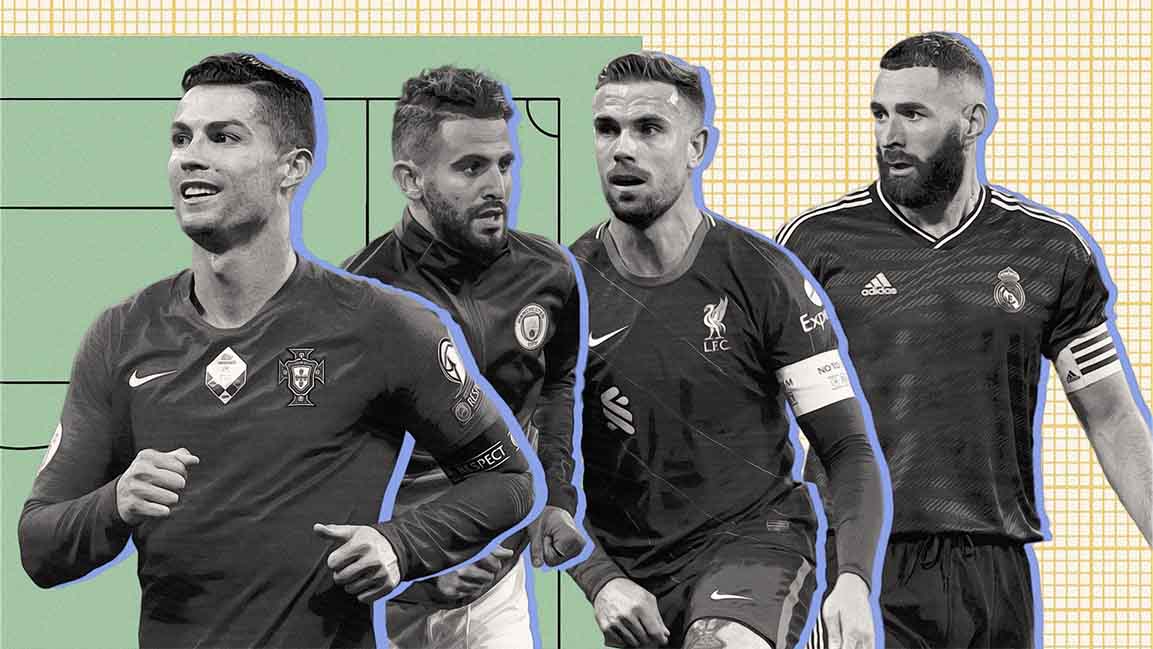- | 9:00 am
Saudi Arabia is kicking off to be a global football power. What’s their game plan?
The rising profile and financial muscle of Saudi Arabia's league have drawn interest from many high-profile players, turning the country into a new hotspot for global soccer talent

When Cristiano Ronaldo joined Al Nassr last December for a reported salary of $200 million a year, Saudi Arabia declared its ambition to be a significant force in world football.
Since then, it’s been bringing in some of the most sought-after players in football – Al-Ittihad recruited Karim Benzema, Al-Hilal signed Rúben Neves, and four Chelsea players are in discussions to join the Saudi Pro League (SPL). Last week, Liverpool captain Jordan Henderson and Man City’s Riyad Mahrez joined Al Ettifaq and Al Ahli. On Monday, Al-Hilal made a staggering bid of $332 million for French striker Kylian Mbappe, whose contract with Paris Saint-Germain is approaching its end.
The country’s push to attract the world’s best players entered a significant phase when the Public Investment Fund (PIF) took a majority ownership stake in four of the country’s top clubs, including Al Nassr and Al-Ittihad.
The Saudi league has players from over 40 countries and has seen attendance increase by nearly 150% in the last year. If reports are to be believed, each majority-PIF-owned club seeks to acquire at least three global names.
“Football players have a very limited window of time to work. Therefore, it makes perfect sense to maximize revenue if there is a chance to do so,” says Andrie Thompson, a former Man City player who now runs a football academy in the UAE.
POSITIVE IMPACT ON ECONOMY
But why is Saudi Arabia spending so much on acquiring these foreign players? The move will attract investment and other commercial opportunities and boost tourism.
“The investment in football clubs in Saudi Arabia has had a positive impact on the national economy, as it has created job opportunities, boosted tourism, and increased revenue through sponsorships, advertisements, and ticket sales,” says Hossamedin Bedier, Business Development Director at Ettifaq Club in Saudi Arabia and a member of the club governance committee. “However, the long-term impact will be much stronger, and the investment will increase the country’s potential.”
The FIFA World Cup in Qatar last year sparked a greater interest in the game in the region, and Saudi Arabia saw this as an opportunity to draw fans by increasing funding for its local clubs.
The national team stunned Messi and Argentina with a victory in their opening game at the World Cup in Qatar in November, and the Al-Hilal club won the Asian Champions League title in 2019 and 2021.
“At the last FIFA World Cup in Qatar, Saudi Arabia gave a glimpse of what we are capable of at the international level and demonstrated the quality of our domestic league, the SPL. But equally, if not more pleasing, was our victory in the U23 AFC Asian Cup without conceding a goal. The future is bright. And a lot of good thinking has gone into advancing football in Saudi Arabia,” said Yasser Al Misehal, President of the Saudi Arabian Football Federation, in a press statement.
BENEFITS FOR LOCAL CLUBS
Saudi Arabia’s homegrown players are also flourishing.
“The creation of a strong domestic league can potentially allow Saudi Arabia to retain and improve the interest from local fans with many financial benefits for local clubs too and the whole football ecosystem,” says Dr. Poli Raffaele, who heads the CIES Football Observatory, a research group for the analysis of the transfer market and the performance of players.
According to experts, the football world is impacted by this market transfer of players. “We saw the identical tactics used by Ligue 1, Serie A, La Liga, and the Premier League of England. And the way they attracted famous players to support the league. This is exactly how the Saudi Premier League will operate for five years. Hopefully, this will enable us to rank among the top five leagues globally,” says Hossamedin.
This aligns with Saudi’s Vision 2030 economic diversification plan, of which sport is a key pillar. The country aims to host the 2030 men’s World Cup and increase the SPL’s annual revenue to around $500 million by 2030. A key component of PIF’s strategy, which owns an 80% stake in English Premier League side Newcastle United and has a 75% ownership in four leading Saudi clubs, is to bring in some of the world’s best players and spread across the clubs to seek a certain level of equality in the league.
As UEFA’s Financial Fair Play restrictions do not apply to the SPL, huge contracts can be used to entice players.
“Sports, especially football, is a strong soft power tool for any country to promote tourism, entertainment, and international exposure of the culture. After the huge success of Qatar World Cup FIFA 2022, the kingdom is accelerating the implementation of this strategy,” adds Hossamedin.
The SPL recently announced a strategy aligning with the Saudi Arabian Football Federation (SAFF) to foster young Saudi talent and secure the best international talent. It launched a Player Acquisition Center of Excellence to create elite squads that combine exciting up-and-coming young Saudi talent with world-class international players.
Thompson, a former Man City player, says, “The plan is to elevate Saudi Arabia to the greatest pedestal. The biggest sport in the world, football, will only complement the vision.”
And Al-Hilal’s record-breaking bid for Mbappe highlights the determination of the country to assert itself as a major player in the global soccer landscape.







































